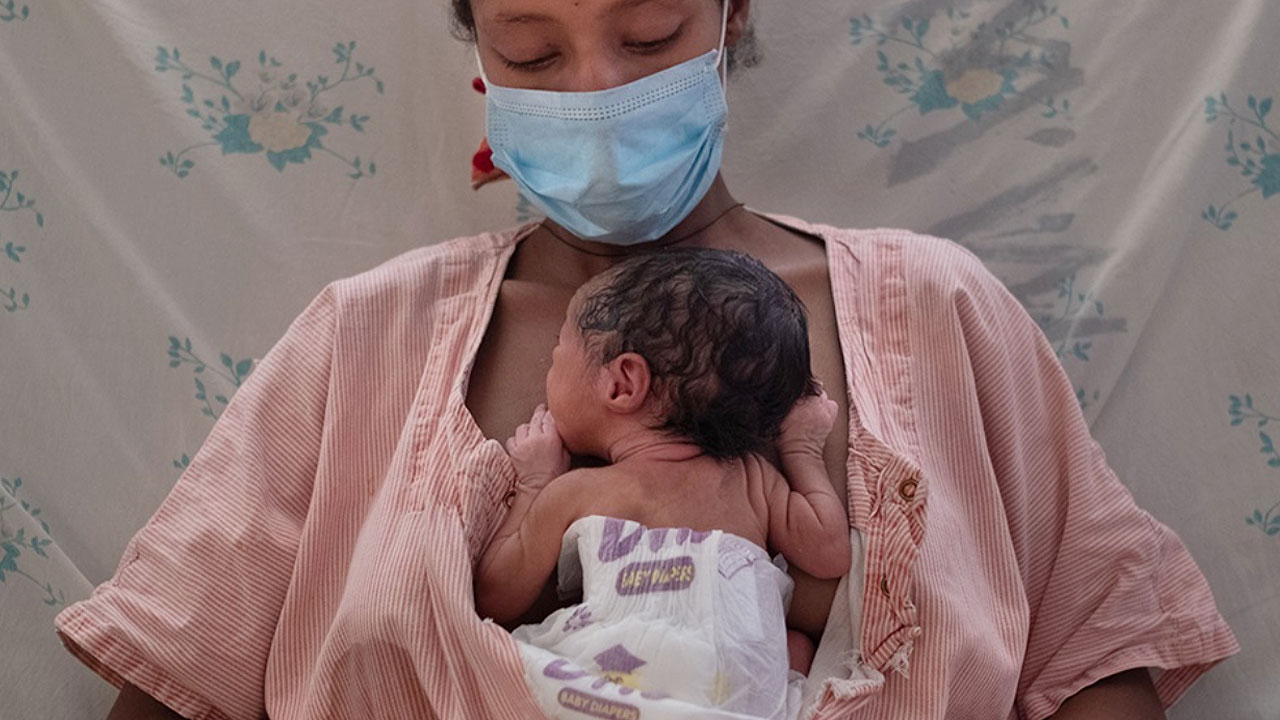Managing COVID risks among pregnant women

By Patricia B. Mirasol
PREGNANT WOMEN with coronavirus disease 2019 (COVID-19) face increased odds of maternal death, admission to intensive care, and cesarean section deliveries.
Clinical recommendations for this patient group include vaccination, as well as home care for those with mild to moderate symptoms, according to medical experts in a recent webinar organized by the World Health Organization (WHO).
There is no contraindication for COVID-19 vaccination among pregnant women, said Dr. Michelle Giles, an Australia-based infectious diseases physician who specializes in managing infections in pregnancy and gynecology. “There is an abundance of safety data. [Getting vaccinated] is strongly recommended for pregnant women.”
She added that many countries recommend booster doses for women who have received two doses.
HOME-BASED CARE
Home-based care for mild and moderate cases during and after pregnancy is possible for pregnant women with COVID-19.
“We see an increased need for home-based care to minimize the risk of transmission,” said Dr. Priya Soma-Pillay, a South Africa-based maternal and fetal medicine sub-specialist with an interest in high-risk obstetrics.
A pregnant patient is suitable for home care if: she has mild to moderate COVID-19; if trained healthcare workers are able to monitor her progress; if she able to adhere to restrictions around the home; if she has a support network (a spouse, caregiver, or similar) who know how to prevent home transmission; if there is a line of communication between the patient and trained healthcare workers; and if her home has access to hygiene supplies and is able to manage waste properly.
“Before the decision is made for home-based care, a clinical picture of the patient needs to be made,” said Dr. Soma-Pillay at the same event.
Healthcare workers have to wear standard PPE (personal protective equipment) of gloves, surgical mask, and apron in the routine care of pregnant COVID-19 patients at home. If a home delivery is anticipated, then a full PPE of gloves, gown, hair cover, N95 ventilator, and goggles is necessary.
Antipyretics (or fever reducers) may be given for pain and fever, Dr. Soma-Pillay said, with antibiotics to be given for bacterial infection.
RECOMMENDED TREATMENT
Systemic corticosteroids are also recommended for patients with severe to critical COVID-19. This type of drug provides relief for inflamed areas of the body.
“For women with mild or moderate COVID-19, the benefits of antenatal [before birth] corticosteroid might outweigh the risks of potential harm to the mother,” said Beverly Hunt, a UK-based professor of Thrombosis & Haemostasis at King’s College London, and a specialist in thrombosis and acquired bleeding disorders.
Ms. Hunt told the audience that corticosteroids such as prednisolone, hydrocortisone, and methylprednisolone do not cross the placenta. On the other hand, the corticosteroid dexamethasone does, and is thus not to be used — unless the goal is to improve fetal lung maturity.
COVID-19 pill molnupiravir, meanwhile, should not be administered to pediatric patients. Neither should it be administered during pregnancy.
“If a woman of child-bearing age is given molnupiravir, she should also be given barrier contraception,” Ms. Hunt said.
WHO’s recommendations for molnupiravir will likely be released in early February.
As with all of the recommended drugs for the management of COVID-19, the balance of benefits and harms for the pregnant woman and fetus should be discussed with the woman.
This balance, added Ms. Hunt, depends on the woman’s clinical condition, her wishes and that of her family, and the healthcare resources available to her.
RISK FACTORS
Pregnant women with COVID-19 were more likely to be admitted to intensive care, according to a global meta-analysis of 192 cohort studies. They were also more likely to require invasive ventilation.
The 2020 study, published by the British Medical Journal, further found that pregnant women with COVID-19 were at higher risk of preterm birth and stillbirth. The newborn babies of pregnant women with COVID-19 also had an increased risk of being admitted to intensive care.
“This review is currently being updated, and the preliminary findings [of the review have yet to be] published,” Dr. Giles said.
Per the Updated Living Systematic Review that includes 435 studies, cesarean section delivery is also more likely among pregnant women with COVID-19.
Three-fourths (or 75%) of pregnant women with COVID-19 are estimated to be asymptomatic, added Dr. Giles. The most common manifestations for those who do have symptoms are fever (40%), cough (41%), and dyspnea (21%).
Warning signs for pregnant women with COVID
Dr. Priya Soma-Pillay, a maternal and fetal medicine sub-specialist with an interest in high-risk obstetrics, said these are signs that require urgent medical attention among pregnant COVID-19 patients:
- Difficulty in breathing and talking
- Coughing blood
- Chest pain or pleuritic chest pain (a sharp, stabbing pain upon coughing or sneezing)
- Signs of dehydration/unable to tolerate oral fluids
- Dizziness
- Confusion
- Pain, bleeding, ROM (rupture of membranes), decreased FM (fetal movement)
- Unremitting fever of more than 39 degrees Celsius despite use of paracetamol



